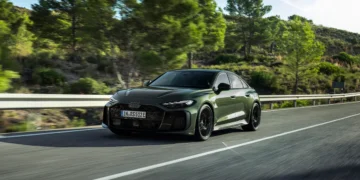
If you’re in the habit of texting while driving, checking social media notifications, or just glancing at the screen, you’re not alone. For many, looking at their phone is part of their driving routine, but there’s a good reason to end this habit: distracted driving is dangerous.
According to data from the National Highway Traffic Safety Administration (NHTSA), distracted driving kills more than 3,000 people each year, accounting for 8% of all fatal crashes. Data from the Virginia Tech Transportation Institute found that drivers who text are 23 times more likely to be involved in a crash than those who don’t text and drive.
If you’re someone who can’t resist the urge, here’s why you should do whatever it takes to ignore your phone when you’re on the road.
1. It Only Takes One Accident
People who have been texting while driving for years without incident tend to develop a false sense of confidence in their ability to multitask. But just because you haven’t gotten into an accident doesn’t mean you’re immune. And chances are, you’ve had some close calls. All it takes is one situation where a hazard occurs at the exact moment you look down at your phone, like a pedestrian running across the road, a driver braking suddenly, or an accident in front of you. If you’re looking at your phone when any of these things happen, you won’t have the awareness or time to react, and a crash will be inevitable.
It doesn’t make sense to leave safety to chance. By driving a motor vehicle, you have a duty to drive safely and follow the rules of the road.

2. Distracted Driving Can Be Fatal
You don’t want to become or create another distracted driving fatality statistic. Trying to handle your phone from behind the wheel can have fatal consequences, and if you’re found legally responsible for the accident, you’ll be facing harsh penalties like fines, required driving classes, a suspended or revoked license, community service, and possibly even jail time.
3. It’s Illegal
In 49 U.S. states (all but Montana), it’s officially illegal to text and drive, push buttons on your phone, scroll, or otherwise hold your phone for any reason other than placing a call to police or emergency services.
Whether or not you agree with the law in your state, consider the consequences. For example, in Tennessee, you can get a fine of $50 plus court fees for your first and second offense, but the fine jumps to $100 for all further offenses. That doesn’t sound so bad, but other states aren’t so lenient.
In Oregon, your first fine can be up to $1,000 and your second offense can result in a $2,000 fine. In Utah, you can spend three months in jail and get a misdemeanor on your driving record for subsequent offenses. In Colorado, offenders can spend up to one year in jail, and Kentucky and Nebraska both put three points on your license for every offense. In Maine, your second offense will get your license suspended for a minimum of 30 days, and in Ohio, they can suspend your license for six months.

4. Multitasking is a Myth
Society has trained us to believe in the art of multitasking, as if it’s a skill you can develop and improve. In reality, there is no such thing. The human brain doesn’t multitask; it toggles between tasks, and toggling between texting and driving lowers your ability to respond quickly to immediate hazards.
Even though many states have made it legal to have a hands-free conversation while driving, that doesn’t mean you’re not distracted. Using a voice assistant and making hands-free calls are distractions that can impair your judgment. Just having a conversation with someone while driving is enough to pull your mind off the road and make you less alert. You might feel safer with voice text or a Bluetooth headset, but the risk still remains high.
5. Your Insurance Rates Will Rise After a Ticket or an Accident
If your texting while driving ticket sticks, you can expect an insurance premium hike by at least 10-20% or higher, depending on the carrier. The same is true after an accident. On the flip side, some insurers will discount your rates for safe driving, which includes not handling your phone from behind the wheel.
Set the phone down and enjoy your drive
The evidence is clear: texting, scrolling, and checking messages while driving is dangerous, but it’s also preventable. Toss your phone in the glove box or the trunk, put it in airplane mode, and keep your attention on the road. It’s a small habit that will keep you and others around you safe.
Images from Matthew Pollock by Marq Mendez – see full story here.



















